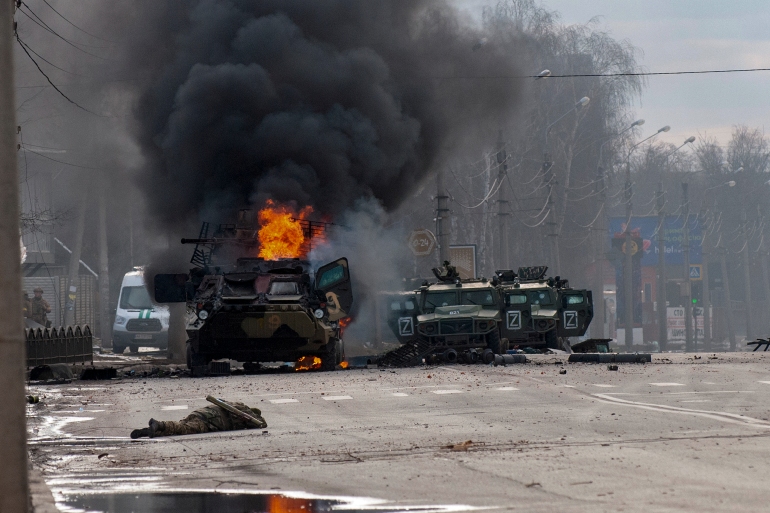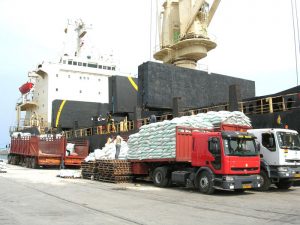The Russian attack on Ukraine may slow global growth and raise new economic risks, but top central banks are keeping their focus trained on an inflation fight that looks set to intensify as prices soar across the board, from fuel to food.
While Europe may be the most vulnerable to a broader economic shock from the war, the European Central Bank made clear on Thursday the region could not turn its back on surging inflation in the euro zone.
Calling the war a “watershed moment” that could curb growth but boost inflation, the ECB agreed to stop pumping money into markets this summer – clearing the way for possible interest rate increases later this year, its first increase in over a decade.
“You can slice inflation any way you want and look at any core measure, it’s above target and rising. We have a 2% mandate and we’re failing it,” said one ECB policymaker, who asked not to be named.
A similar narrative was emerging in other Western countries, including the United States, as officials weigh the potential damage on their economies from the war against the persistent rise in inflation.
Growth is expected to remain above trend in major economies, allowing them to focus on inflation running far faster than their common 2% percent benchmark.
The Bank of Canada raised interest rates earlier this month.
The Bank of England and the Federal Reserve are expected to do so next week. Each is expected to follow with more increases in coming months.
Even fiscal policy officials – more sensitive to the politics of economic developments and often cheerleaders of looser central bank policies – are keenly aware of the corrosive power of run-away price increases.
Inflation “is of tremendous concern,” Treasury Secretary Janet Yellen said on Thursday. “It hits Americans hard. It makes them worry about basic pocketbook issues.”
With U.S. consumer inflation hitting a 40-year high, investors now expect the Fed to raise the target federal funds rate to a level between 1.75% and 2% by year’s end, a quarter point higher than they expected as of last week.
The ECB is actually a latecomer to tightening and will have to pay an price for this. The euro has weakened sharply in recent weeks on expectations the ECB would drag its feet in cutting stimulus and that will raise inflation further through higher import prices.
Euro area inflation is seen over 5% this year, more than twice the ECB’s 2% target, taking until 2024 to fall back below that level.
“The Fed will tighten quicker and the FX rate will reflect that,” the ECB policymaker said. “I wouldn’t be surprised if there was more euro weakness after the Fed meeting next week. We have fallen behind the curve compared to other central banks.”
Economists tried to caution the ECB on Friday, warning that high commodity prices could actually drag the euro zone into recession but policymakers dismissed this view.
“Growth remain positive, there is no recession,” French central bank chief Francois Villeroy de Galhau said.
ASIA OUTLOOK MURKIER
The outlier among major central banks is the Bank of Japan, which is expected to maintain ultra-loose monetary policy to support a still fragile recovery even as surging energy costs push up inflation toward its 2% target.
“If crude oil and commodity prices drive up inflation while wage growth remains slow, that would hit households’ real income and corporate profits, and hurt the economy,” BOJ Governor Haruhiko Kuroda said on Tuesday.
The monetary policy path is less clear in Asia, where many economies have lagged Western counterparts in scrapping harsh pandemic restrictions.
For some central banks in the region, such as New Zealand, South Korea and Singapore, deep worries about prices and imported inflation have already set off policy tightening.
Australia’s top central banker on Friday cautioned borrowers it would be prudent to prepare for a rise in rates this year with inflation set to increase.
For most others in the region, the need to sustain a fragile recovery is likely to complicate deliberations.
Thailand’s central bank is unlikely to raise interest rates any time soon despite inflation spiking to a 13-year high, as the war’s effect to tourism and trade dent growth.






